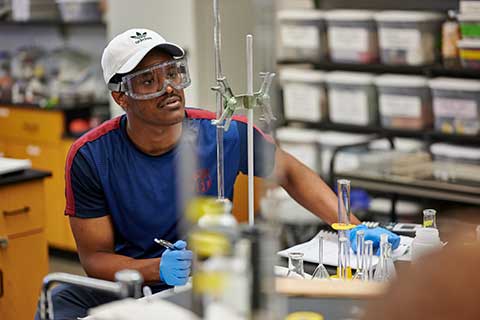MWSU’s Biology and Chemistry departments offer a collaborative degree in Biochemistry and Molecular Biology.
The Biochemistry and Molecular Biology major is offered jointly by the departments of Biology and Chemistry. A Bachelor of Science in Biochemistry and Molecular Biology prepares graduates for entry-level work in areas such as life science industry or entry into graduate schools. Students have the option to earn this degree with American Chemical Society (ACS) certification, allowing them to graduate college with professional certification.
Quick Facts about this degree:
- The Biology Department boasts a biological chemistry lab that contains $500,000 worth of equipment, including a DNA Sequencer and Synthesizer.
- MWSU students in this program gain extensive hands-on experience in all labs through class work and independent research.
- The Biology Department has been awarded millions of dollars in National Science Foundation (NSF) grants to support undergraduate student research.
- Professors work very closely with students on research projects, which a high percentage of students presenting their findings at professional meetings.
Check out Research & Internships to explore applied research opportunities offered by the MWSU Biology Department.
Biochemistry & Molecular Biology Advisors
Questions about the Biochemistry & Molecular Biology or the Biochemistry and Molecular Biology with ACS Certification degrees? Contact one of these advisors or contact the Biology Department at (816) 271-4379 or biology1@missouriwestern.edu.

Mapping your degree plan is important. Consult with your academic advisor to create a plan and monitor it regularly.


